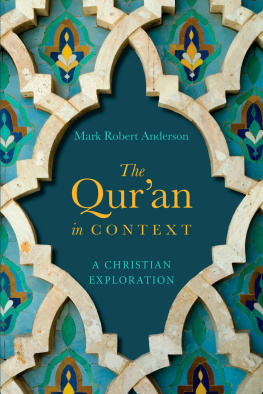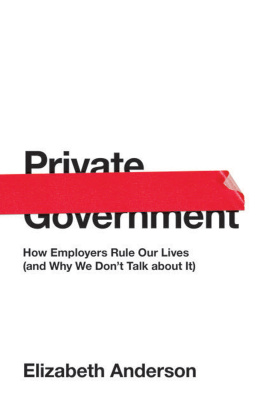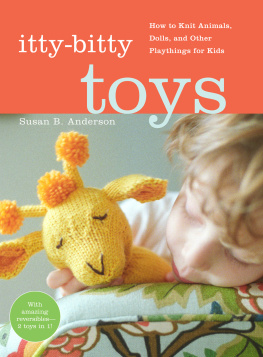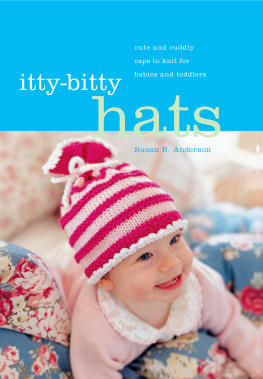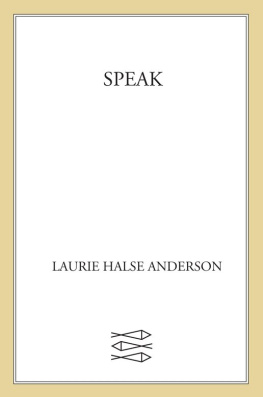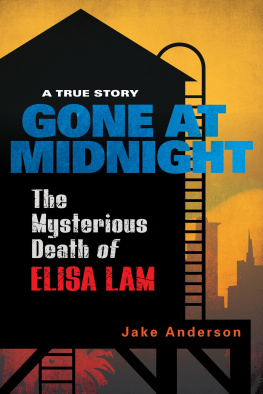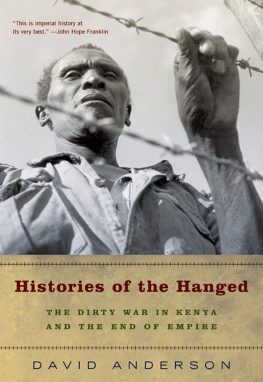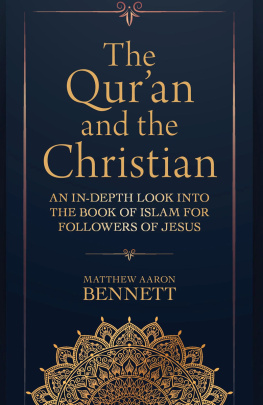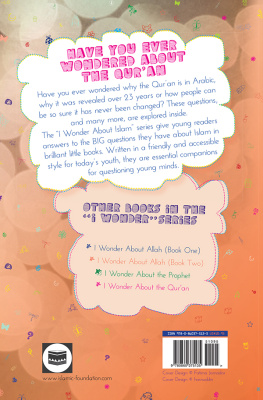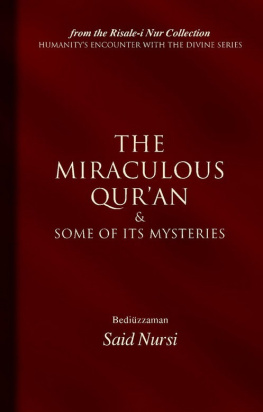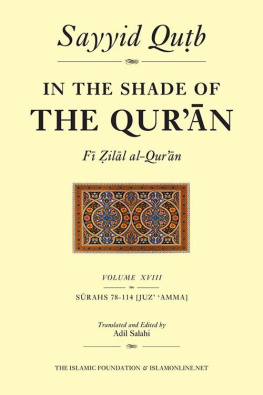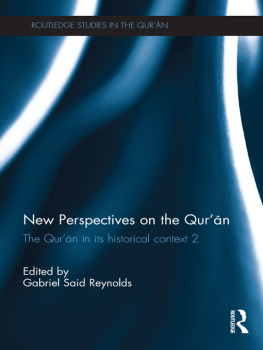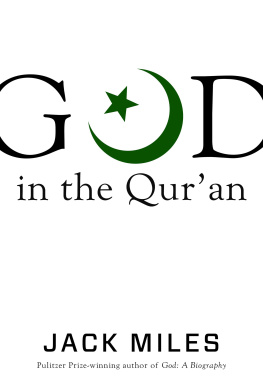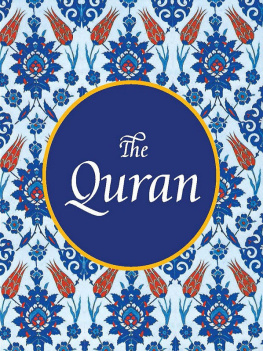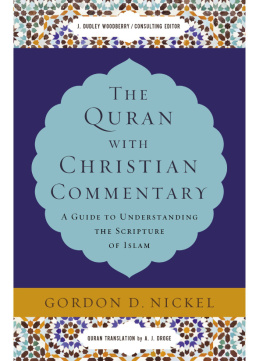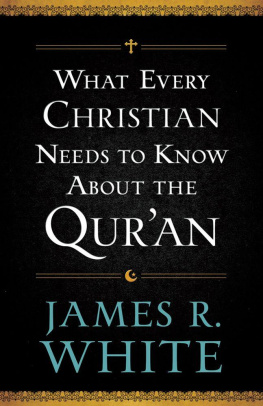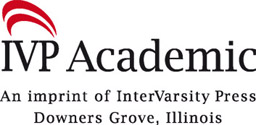The
Quran
in CONTEXT
A CHRISTIAN
EXPLORATION
Mark Robert Anderson
InterVarsity Press
P.O. Box 1400, Downers Grove, IL 60515-1426
ivpress.com
2016 by Mark Robert Anderson
All rights reserved. No part of this book may be reproduced in any form without written permission from InterVarsity Press.
InterVarsity Press is the book-publishing division of InterVarsity Christian Fellowship/USA, a movement of students and faculty active on campus at hundreds of universities, colleges and schools of nursing in the United States of America, and a member movement of the International Fellowship of Evangelical Students. For information about local and regional activities, visit intervarsity.org.
Scripture quotations, unless otherwise noted, are from the New Revised Standard Version of the Bible, copyright 1989 by the Division of Christian Education of the National Council of the Churches of Christ in the USA. Used by permission. All rights reserved.
Cover design: David Fassett
Interior design: Daniel van Loon
Images: FransDekkers/iStockphoto
ISBN 978-0-8308-9343-0 (digital)
ISBN 978-0-8308-5142-3 (print)
This digital document has been produced by Nord Compo.
To the memory of
CHARLES J. ADAMS
19242011
and
HARVIE M. CONN
19331999
without whose inspiration and guidance
this book would not have been written
Truth has no special time of its own.
Its hour is now, always, and indeed then most truly
when it seems most unsuitable to actual circumstances.
ALBERT SCHWEITZER
Out beyond ideas of wrongdoing and rightdoing
there is a field. Ill meet you there.
JALAL AL-DIN RUMI
Preface

A book such as thisintended for both students and scholars as well as an interested lay publicdemands writing that is thorough and precise while still being broadly accessible. To that end I have omitted all but essential diacritical marks in my transcriptions of Arabic. This should make things easier for non-Arabists without hindering Arabists. Like the Arabic they represent, my transcriptions have no uppercase letters except in the word Allah and in names of persons, places and so on. English loanwords from Arabic (hadith, jihad, sharia, sura, etc.) do not appear in italics, but they are listed in the glossary along with all the other Arabic terms used. The glossary and maps should assist readers unfamiliar with Muhammads world. Translations from the Quran are my own unless otherwise noted. Full citations of Quran translations are given on the first occasion, after which I cite them simply by the translators name. All quotations of the Bible are from the New Revised Standard Version unless otherwise noted. I abbreviate Encyclopaedia of Islam as EI2 and Encyclopaedia of the Qurn as EQ. Since I write specifically for non-Muslims, I give dates only according to the Western calendar.
On hearing that I was writing this book, various individuals offered advice on how to approach my task. As it happened, some of the advice was diametrically opposite, with some people urging me to stress points of agreement between the Bible and Quran, and others to focus on points of difference. These contrary concerns puzzled and troubled me since they seemed equally partial, unbalanced and controlling. Our two scriptures bear both clear similarities and differences. What, I wondered, could possibly justify my editing either one out or even just downplaying one of them? Since the Quran has its own literary integrity as a scripture, does not faithful scholarship rather respect that integrity and allow it to speak for itself? Focusing on either similarity or difference without acknowledging the other seems subversive to me. Hence I have avoided both alternatives, viewing them as equally driven by fearnamely, the fear that a holistic approach to the Quran is simply unsuited to our current situation. With Schweitzer, I protest that Truths hour is now, always.
Between us Christians and Muslims make up more than 50 percent of the worlds population, with that number projected to exceed 60 percent by 2050.
Acknowledgments
I picture my book like a river whose broad mouth gives no indication that it has been fed by innumerable streams and enriched by the earth across which it has so freely flowed. With its waters irretrievably intermingled, it appears self-sufficient. But in fact, a river is in one sense all debt. For though it clearly has a life of its own, it nevertheless carries nothing it did not receive. Likewise, this book would not be what it is without a host of peoplescholars, family, friends and others. While I cannot possibly acknowledge them all, I must at least name a few.
Though I know only a handful of them personally, I am very conscious of the many scholars who have contributed to this book. My debt to Robert Hoylandfor his work on pre-Islamic Arabia, early non-Muslim sources and the Islamic origins narrativewill be abundantly evident to readers. Jean Bottro, Patricia Crone, Reuven Firestone, Greg Fisher and Sidney Griffith are among the many others who have contributed vitally to my understanding of Muhammads world. Mahmoud Ayoub, Rick Brown, Fred Donner, Yohanan Friedmann, William Graham, Toshihiko Izutsu, John Kaltner, Daniel Madigan, David Marshall, Angelika Neuwirth, Gordon Nickel, Iain Provan and Gabriel Reynolds are among those who have most strengthened my grasp of the Quran. For key biblical insights, I am also grateful to Andy Crouch, John Goldingay, Vern Poythress, Lamin Saneh, John Stackhouse and N. T. Wright. Some of these scholars are also among the many who graciously answered queries I put to them during the course of my writing.
Astute criticisms of the masters thesis from which this book grew were offered by Christopher Melchert and Andrew Rippin. My good friend Andy coupled his incisive criticism of every section of the book (scrutinizing multiple revisions of some parts!) with unfailing enthusiasm for my work, helping to energize it from start to finish. To say that his countless contributions have greatly improved the book is a huge understatement. My special thanks go to him and his family. Two other friends, Neil and Kevin, also read key parts of the manuscript and offered helpful suggestions. But despite all the help I have received, it goes without saying that I alone am responsible for any errors remaining.
I cannot begin to say how grateful I am to my dear wife, Cathy, for her steadfast love and support throughout this long process. This is her book no less than mine. Our four children offered continual encouragement, as did my four siblings. I am especially thankful to my mother, whose prayers, I believe, brought this book to completion, even though she unfortunately did not live to hold it in her hands. Jim Houstons friendship in the latter stages of this book has been a real inspiration and help. Also, I am grateful to Roger and Alayne, Joan and Keith, Sid and Lyn, and Sally for allowing me temporarily to turn their home or cottage into a writing den, without which I might never have found my way through the wilds of Muhammads world (part one)! Friends Tom and Shirley, Marsha and Lane, Rick and Linda, the good folk at Rivendell and all my dear friends at LArche have generously supported this project in other ways. I am also grateful to the University of British Columbia and Regent College libraries and especially Vancouver Public Librarys interlibrary loans department. I am especially indebted to Tom Wright for his invaluable help, affording me the chance to offer my book to IVP and giving me the courage to see it through to completion. Last but not least, my editor, Dan Reid, has been every writers dream. For his wisdom, encouragement, gentleness (writers can be thin skinned!) and patience, I am deeply grateful. Neither do I take the rest of the team at IVP for granted: I have only praise for all of their dealings with me.

